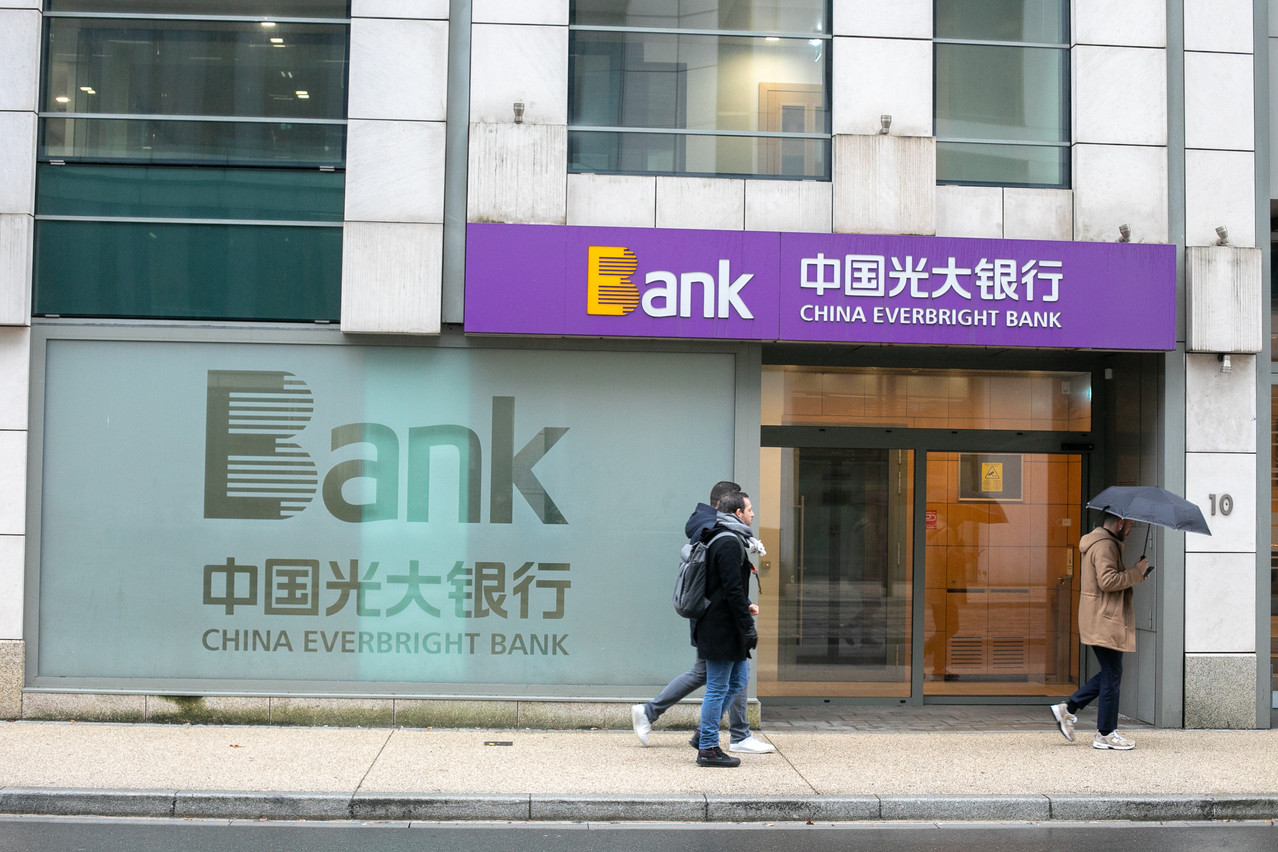Deflationary pressure, a property crisis, fragile trade, weak demand… the Chinese economy is struggling, as a result of which international investors are shying away from its market.
This is not doing Luxembourg any favours: the country has positioned itself as one of Europe’s main centres for cross-border yuan business and a major centre for investment between China and Europe. By the end of 2021, Luxembourg was home to 75% of the European funds--and 44% of the global funds--that invest in China, according to PwC and Lipper. Seven Chinese banks have set up their European headquarters in Luxembourg, with Bank of China having had a presence in the country for almost 45 years. Additionally, local banks Bil and Hauck & Aufhäuser are owned by Chinese shareholders.
Since the default of property developer Evergrande in 2021, investment funds with a Chinese strategy have suffered significant capital outflows. The amounts involved may seem modest in relation to the Luxembourg fund industry (more than €5trn in assets under management), but the trend is negative: from a peak of €126.9bn, total assets held by Luxembourg residents in China fell to €79.3bn between June 2021 and June 2023, according to the Luxembourg Central Bank. This represents a fall of almost 40% over two years.
This decline reflects an international trend that, for observers, is largely due to macroeconomic factors (low interest rates, economic underperformance and depreciation of the yuan in China) and, to a lesser extent, to geopolitical factors (increased surveillance of Chinese capital flows into and out of the United States and Europe).
Investors have been cautious… but interest in China is still there.
Nigel Fielding, former CEO of HSBC Luxembourg and expert on the China-Luxembourg ecosystem, confirms this slowdown: “Investors have been cautious for about a year, and I don’t see any change in the short term. But interest in China is still there. As far as I’m concerned, Luxembourg has a solid infrastructure, and in the long term the outlook is positive.”
This is seen by the development of yuan bonds listed on the Luxembourg Stock Exchange (LuxSE). It is the world’s leading market (by number of bonds) for offshore yuan bonds, also known as “dim sum bonds.” With a global market share of 33.9%, Luxembourg has overtaken Hong Kong, according to a 2021 report from PwC and Lipper.
“The total amount of bonds in circulation is reasonably significant,” Fielding points out. “After growing, it has stayed at about the same level through the difficult periods of the covid pandemic and, more recently, the somewhat slower growth rate in the Chinese economy and increased geopolitical tensions in some areas. New bond issues have continued, albeit at a slower pace this year, which is not surprising given some of the factors mentioned above and my view that investors have shifted to a more cautious stance. Finally, the progression of the average values for new bonds and bonds in circulation is fairly positive.”
This is encouraging news for asset managers, who are seeking to put China back on their clients’ radars. “Investors, even if only indirectly, cannot escape exposure to the world’s second-largest economy,” noted UBS recently in a aimed at “providing a more balanced picture of China.” In November, banks closely followed the attempt at diplomatic reconciliation between presidents Xi and Biden--but it will undoubtedly take more to win back investor confidence.
This article in Paperjam. It has been translated and edited for Delano.

